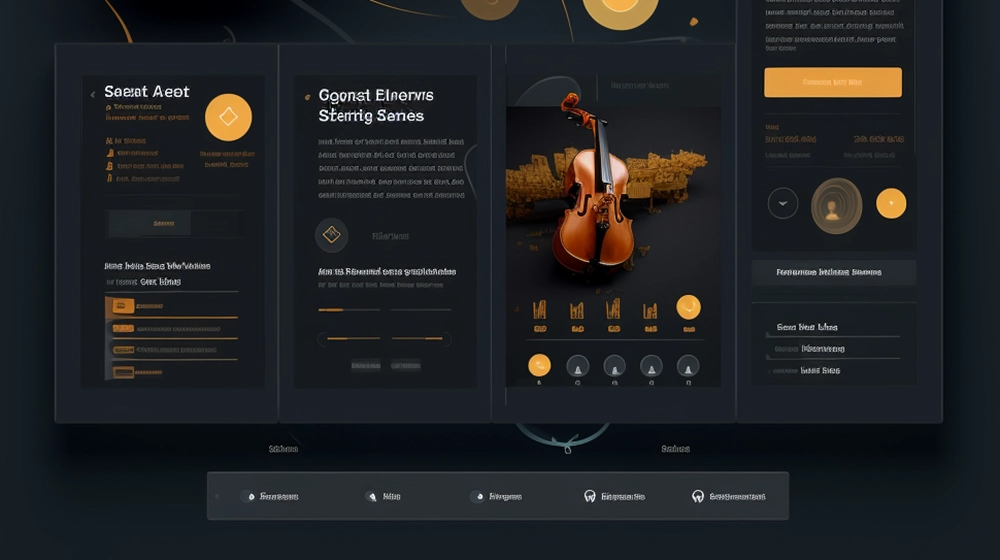This comprehensive guide is designed to unravel the complexities of off-page SEO. Whether you’re a seasoned marketer or just starting out, our insights into off-page authority building will empower you to craft strategies that significantly enhance your website’s credibility and search engine ranking.
Understanding Off-Page Authority Building
- What is Off-Page Authority Building? At its core, off-page authority building refers to the actions taken outside of your own website to bolster its position in SERPs.
Unlike on-page SEO, which focuses on optimizing elements within your site, off-page SEO involves strategies like link building, social media engagement, and influencer collaborations that happen elsewhere but impact your site’s perceived value and authority. - The Difference Between Off-Page and On-Page SEO: Imagine on-page SEO as the internal workings of a watch, precise and intricate, while off-page SEO is akin to the brand reputation of the watch in the market.
Both are essential, but they work in fundamentally different ways to enhance the overall value of the timepiece, or in our case, your website. - Evolution of Off-Page SEO Practices: Over the years, off-page SEO has evolved from a narrow focus on link quantity to a broader emphasis on link quality, brand mentions, and user engagement across various platforms.
This evolution mirrors the changing algorithms of search engines that now prioritize user experience and the credibility of information. - Role in Search Engine Algorithms: Search engines like Google use complex algorithms to determine a website’s ranking.
Off-page factors such as backlinks from authoritative sites, social media presence, and user engagement play a crucial role in these algorithms, signaling the trustworthiness and authority of your website. - Real-World Examples: Brands that excel in off-page SEO often see a significant boost in their online presence.
For instance, a small local bakery might gain widespread recognition through high-quality backlinks from food blogs, active social media engagement, and positive reviews on various platforms, thereby climbing up the SERPs.
The Importance of Off-Page Authority Building for SEO Success
- Impact on Search Rankings: The primary goal of off-page authority building is to improve a website’s visibility and ranking on search engines.
High-quality backlinks from authoritative websites are like votes of confidence, signaling to search engines that your content is valuable and reliable. - Influence on Online Reputation and Brand Visibility: Off-page SEO extends beyond search engines; it’s about building a brand’s reputation online.
Engaging with users on social media, garnering positive reviews, and being mentioned on reputable sites collectively enhance your brand’s online visibility and reputation. - Case Studies: Many success stories in the digital marketing world attribute a significant part of their triumph to robust off-page SEO strategies.
For example, a tech startup might soar in popularity by featuring in tech blogs, engaging with followers on Twitter, and earning mentions in industry reports. - Google’s Perception of Off-Page Factors: Google, the leading search engine, places significant emphasis on off-page factors when determining a site’s ranking. It’s not just about the quantity of backlinks but the quality, relevance, and the context in which these links are acquired.
- Balancing Off-Page and On-Page Elements: For optimal SEO success, it’s crucial to strike a balance between on-page and off-page elements.
While your site’s content, structure, and on-page SEO lay the foundation, off-page SEO builds and amplifies your site’s authority and reputation.

Best Strategies for Building Off-Page Authority
- Comprehensive Overview of Proven Off-Page Techniques: To boost your off-page SEO, it’s vital to employ a range of strategies.
This includes everything from traditional link-building practices to modern techniques like social media engagement and influencer marketing.
Each strategy plays a unique role in strengthening your online presence.
- Link Building: Best Practices and Innovative Approaches: The cornerstone of off-page authority building is link building.
It’s about getting other reputable websites to link to your content. However, the focus should always be on quality over quantity.
Acquiring a few links from well-respected sites is far more valuable than dozens from lesser-known sources.
- Utilizing Content Marketing for Off-Page Authority: High-quality, engaging content naturally attracts backlinks. By creating compelling, informative, and share-worthy content, you encourage other websites and influencers to link to your site.
This not only increases your backlink profile but also enhances your brand’s reputation.
- Harnessing the Power of Social Media Engagement: Active social media engagement helps in building a community around your brand.
Regularly interacting with your audience, sharing valuable content, and participating in social conversations can amplify your online presence and encourage others to link to your site.
- Influencer Marketing and Its Impact on Off-Page Authority: Collaborating with influencers can significantly boost your off-page SEO.
Influencers with a substantial following can drive traffic to your site, increase your brand’s visibility, and even help in link building if they share your content.
- Local SEO Strategies and Their Role in Off-Page Authority: For businesses with a physical presence, local SEO is a crucial aspect of off-page authority building.
This includes managing local listings, getting featured in local directories, and garnering reviews on platforms like Google My Business.
- Managing and Leveraging Online Reviews: Online reviews play a significant role in building off-page authority.
Positive reviews on platforms like Yelp, Google My Business, and industry-specific sites can greatly enhance your brand’s credibility and authority.
- Guest Blogging and Collaborative Content Creation: Guest blogging on reputable sites in your industry can be a great way to build backlinks.
Additionally, collaborating with other content creators can result in shared authority and increased visibility.
- Utilizing Press Releases and Media Coverage: Issuing press releases and getting media coverage can lead to high-quality backlinks and brand mentions.
This is particularly effective when you have newsworthy content or a significant announcement to share.
- Navigating Google’s E-A-T Principles in Off-Page SEO: Understanding and adhering to Google’s E-A-T (Expertise, Authoritativeness, Trustworthiness) guidelines is crucial.
This involves building a reputation as an expert in your field and ensuring that your off-page SEO tactics align with these principles.
Measuring the Success of Off-Page Authority Efforts
- Key Metrics and Tools for Evaluating Off-Page SEO: To gauge the effectiveness of your off-page SEO efforts, it’s important to track specific metrics.
Tools like Google Analytics, Ahrefs, and Moz can provide valuable insights into your backlink profile, referral traffic, and overall off-page SEO performance. - Understanding Domain Authority and Its Relevance: Domain Authority (DA) is a metric developed by Moz that predicts how well a website will rank in SERPs.
While not a direct ranking factor used by Google, it can be a useful gauge of your site’s perceived authority. - Analyzing Backlink Quality and Profile: The quality of backlinks is more important than quantity.
Tools like SEMrush and Ahrefs can help analyze the authority of linking domains, the relevance of links, and identify any potentially harmful backlinks. - Tracking Social Media Engagement and Share Metrics: Social media metrics, including likes, shares, comments, and brand mentions, can provide insights into how well your content resonates with your audience and the impact of your social media strategies on off-page SEO.
- Using Analytics to Monitor Referral Traffic and User Behavior: Understanding how referral traffic from other websites impacts user behavior on your site is key.
Analytics can show you not just how many visitors you’re getting from external sources, but also their engagement levels. - The Role of Brand Mentions in Measuring Success: Brand mentions, even without a link, can be a powerful indicator of off-page authority.
Tools like Google Alerts and Mention can track where and how often your brand is being talked about online. - Interpreting Competitor Analysis for Benchmarking: Analyzing your competitors’ off-page SEO strategies can provide valuable insights.
Tools like BuzzSumo and SEMrush can reveal where they are getting their backlinks and mentions, helping you to identify potential opportunities for your own strategy. - The Importance of Continuous Monitoring and Adjustments: Off-page SEO is not a set-and-forget strategy.
Regular monitoring and tweaking of your tactics are necessary to adapt to the ever-changing digital landscape and search engine algorithms. - Reporting and Communicating Off-Page SEO Performance: Effectively reporting on your off-page SEO performance is crucial, especially when communicating with stakeholders.
Regular reports should highlight key metrics, progress made, and areas for improvement.

Overcoming Challenges in Off-Page Authority Building
- Identifying Common Obstacles in Off-Page SEO: Navigating the world of off-page SEO can be fraught with challenges.
From finding high-quality link opportunities to managing your digital reputation, the obstacles are many, but not insurmountable. - Addressing the Challenge of Acquiring High-Quality Backlinks: One of the biggest challenges in off-page SEO is acquiring links that positively impact your site’s authority.
This requires a targeted approach, focusing on building relationships with authoritative websites in your niche and consistently producing high-quality content. - Strategies to Overcome Low Engagement on Social Media: Boosting engagement on social media can be a daunting task. It’s essential to understand your audience, post content that resonates with them, and engage in meaningful interactions.
Consistency and authenticity are key to building a loyal following. - Dealing with Negative SEO and Unnatural Links: Negative SEO, such as spammy backlinks, can harm your site’s reputation.
Regularly monitoring your backlink profile and using tools like Google’s Disavow tool can help mitigate these risks. - Navigating the Complexities of Influencer Partnerships: While influencer collaborations can be highly beneficial, they also come with challenges like ensuring brand alignment and measuring ROI.
Clear communication and setting mutual goals are crucial in these partnerships. - Mitigating the Risks of Google Algorithm Updates: Google’s algorithm updates can significantly impact off-page SEO strategies.
Staying informed about these updates and focusing on white-hat SEO tactics can help you stay ahead of the curve. - Building Authority in Highly Competitive Niches: In saturated markets, establishing off-page authority can be particularly challenging.
Differentiating your brand, leveraging niche-specific platforms, and focusing on unique aspects of your offering can help you stand out. - Ensuring Compliance with Google’s Webmaster Guidelines: Adhering to Google’s guidelines is essential for sustainable off-page SEO.
This means avoiding black-hat tactics like link schemes and focusing on strategies that offer real value to users. - Balancing Short-term Gains with Long-term Off-Page Authority Goals: While short-term tactics can yield quick results, they might not be sustainable.
It’s important to balance these with long-term strategies that gradually build your site’s reputation and authority. - Case Studies: Successful Recovery from Off-Page SEO Setbacks: Learning from others’ experiences can be incredibly valuable.
Case studies of brands that have successfully navigated off-page SEO challenges can provide insights and strategies that you can apply to your own efforts.
Creating High-Quality Backlinks
- Fundamentals of Effective Link Building: The foundation of successful link building lies in understanding what makes a backlink valuable.
Focus on acquiring links from websites that are relevant to your niche and have a strong authority. - Strategies for Organic Link Acquisition: Organic link acquisition involves creating content or providing a service that naturally encourages others to link to your site.
This can include original research, comprehensive guides, or tools that offer unique value. - Leveraging Content Marketing for Link Attraction: Utilize content marketing to create pieces that naturally attract backlinks.
This could be through insightful blog posts, infographics, or videos that provide valuable information and are likely to be shared. - Building Relationships for Link Opportunities: Building relationships with other website owners, bloggers, and influencers in your industry can lead to natural link-building opportunities.
Networking, both online and offline, can play a key role in this. - The Role of Guest Posting in Link Building: Guest posting remains a potent way to earn backlinks.
By contributing high-quality content to other blogs or websites in your industry, you can gain exposure and backlinks in return. - Utilizing Broken Link Building Techniques: Broken link building involves finding broken links on other websites and suggesting your content as a replacement.
This not only helps the site owner but also provides you with a valuable backlink. - Ethical Approaches to Link Exchanges and Partnerships: While link exchanges can be beneficial, they need to be done ethically and sparingly.
Ensure that any link exchange is relevant, adds value to users, and does not violate search engine guidelines. - Analyzing Competitors’ Backlink Profiles for Opportunities: Studying your competitors’ backlink profiles can reveal opportunities for your own link-building efforts.
Tools like Ahrefs and SEMrush can provide insights into where your competitors are getting their backlinks. - Avoiding Common Pitfalls in Link Building: Common pitfalls in link building include focusing too much on quantity over quality and engaging in spammy tactics.
Understanding and avoiding these pitfalls is crucial for effective link building. - Tools and Resources for Effective Link Management: Managing your backlink profile efficiently requires the right tools.
Resources like Moz’s Link Explorer and Ahrefs’ Backlink Checker can help you track, analyze, and optimize your backlink strategy.
Role of Social Media and Content Marketing in Off-Page Authority
- Integrating Social Media into Off-Page SEO Strategies: Social media platforms are powerful tools for amplifying your online presence.
By consistently posting engaging content and interacting with your audience, you can drive traffic to your website and increase your brand’s visibility. - Crafting Shareable and Engaging Content: The key to social media success is creating content that resonates with your audience and encourages sharing.
This could be informative blog posts, visually appealing infographics, or interactive videos that prompt user engagement and shares. - Leveraging Different Social Platforms for Maximum Impact: Each social media platform has its unique audience and content preferences.
Tailoring your content strategy to suit platforms like Instagram, LinkedIn, Twitter, or Facebook can help in reaching the right audience effectively. - Utilizing User-Generated Content for Authentic Engagement: Encouraging your audience to create content related to your brand can be a powerful off-page SEO tactic.
User-generated content can increase engagement, build community, and serve as authentic testimonials for your brand. - The Impact of Viral Content on Off-Page Authority: Viral content can exponentially increase your brand’s reach and authority.
While it’s not always predictable, creating high-quality, unique, and timely content increases the chances of going viral. - Collaborations with Influencers and Brand Advocates: Partnering with influencers and brand advocates can extend your reach to new audiences.
Influencers can amplify your content and create backlinks through their platforms, enhancing your off-page SEO. - Monitoring Social Sentiments and Brand Mentions: Keeping track of what’s being said about your brand on social media is crucial.
Tools like Brand24 or Mention can help monitor social sentiments and brand mentions, providing insights into your brand’s online reputation. - Best Practices for Social Media Optimization: Effective social media optimization involves using the right hashtags, engaging with followers, posting at optimal times, and consistently delivering quality content that aligns with your brand’s voice and message.
- Case Studies: Successful Social Media Campaigns for SEO: Learning from successful social media campaigns can provide valuable lessons.
Analyzing case studies where brands have effectively used social media to boost their off-page SEO can offer insights and strategies for your own campaigns. - Future Trends in Social Media’s Role in Off-Page SEO: Staying ahead of the curve with emerging social media trends is important.
This might include leveraging new platforms, adapting to changing algorithms, or employing innovative content strategies to maintain and grow your online authority.

Leveraging Influencer Relationships for Off-Page Authority
- Understanding the Value of Influencer Collaborations in SEO: Influencer collaborations can significantly increase your website’s visibility and authority.
An influencer’s endorsement can lead to increased traffic, social shares, and potentially valuable backlinks to your site. - Identifying and Engaging with Relevant Influencers: Finding the right influencers involves researching individuals who align with your brand values and have an engaged audience relevant to your niche.
Building genuine relationships with these influencers is key to successful collaborations. - Crafting Collaborative Content with Influencers: Collaborating on content creation with influencers can be mutually beneficial.
Whether it’s a guest blog post, a social media takeover, or a co-hosted webinar, these collaborations can result in valuable content and backlinks. - Measuring the Impact of Influencer Partnerships on SEO: To gauge the effectiveness of influencer collaborations, track metrics like referral traffic, brand mentions, and the quality of backlinks gained from these partnerships.
- Nurturing Long-term Relationships with Key Influencers: Building long-term relationships with influencers can lead to ongoing benefits.
Regular collaborations with trusted influencers can continuously boost your off-page SEO efforts. - Influencer Outreach Strategies: Dos and Don’ts: When reaching out to influencers, it’s important to be clear, concise, and respectful.
Personalize your outreach, offer value, and avoid overly promotional or generic requests. - Legal and Ethical Considerations in Influencer Marketing: Ensure that your influencer collaborations comply with legal guidelines, such as disclosing sponsored content.
Ethical practices not only maintain your brand’s integrity but also build trust with your audience. - Incorporating Influencer Insights into Off-Page Strategy: Influencers can provide valuable insights into your target audience.
Incorporate these insights into your off-page strategy to improve your content, engagement tactics, and overall approach to SEO. - Case Studies of Influencer-Driven Off-Page Success: Analyze case studies where brands have successfully used influencer relationships to boost their off-page SEO.
These real-life examples can provide practical tips and inspiration for your own strategy. - Emerging Trends in Influencer Marketing for SEO: Keeping up with the latest trends in influencer marketing, such as leveraging micro-influencers or exploring new social platforms, can keep your off-page SEO strategy fresh and effective.
Additional Insights on Off-Page Authority Building
While we have covered the fundamental aspects and strategies of off-page SEO, there are additional layers and nuances that can further enhance your understanding and execution of these tactics.
- Understanding the Global Impact of Off-Page SEO: Off-page SEO isn’t confined to a specific geographic location.
The global nature of the internet means that your off-page strategies can have international implications, reaching audiences and garnering backlinks from around the world. - The Role of Cultural Sensitivity in Content Marketing: When creating content for a diverse audience, cultural sensitivity becomes crucial.
Tailoring your content to respect and appeal to different cultural backgrounds can significantly boost your global reach and engagement. - Strategic Use of Analytics in Off-Page SEO: Leveraging analytics tools is key to understanding the effectiveness of your off-page strategies.
Deep dives into data can reveal which tactics are working, which need refinement, and untapped opportunities for enhancing your site’s authority. - Exploring the Intersection of Off-Page SEO and Public Relations: There’s a strong correlation between off-page SEO and public relations.
Effective PR strategies can result in high-quality backlinks, improved brand reputation, and increased visibility, all of which are essential components of off-page SEO. - The Growing Importance of Mobile Optimization in Off-Page SEO: With the increasing use of mobile devices, optimizing your off-page content for mobile users is critical.
This includes ensuring that backlinked content is mobile-friendly and engaging for users on-the-go. - Leveraging Local Events and Communities for Off-Page SEO: Participating in local events and engaging with local communities can be a powerful off-page SEO tactic, especially for businesses with a physical presence.
This approach can lead to local backlinks and improved local search rankings. - The Impact of Voice Search on Off-Page SEO: As voice search becomes more prevalent, its impact on off-page SEO grows.
Optimizing for voice search can involve targeting conversational keywords and getting featured in voice search results, which often pull from high-authority pages. - Incorporating Video Content into Off-Page SEO Strategies: Video content is increasingly important in digital marketing.
Videos can attract backlinks and social shares, particularly when hosted on platforms like YouTube, which itself is a powerful search engine. - Navigating the Challenges of Scalability in Off-Page SEO: As your website grows, scaling your off-page SEO efforts can become challenging.
It’s important to develop scalable strategies that can grow with your website, such as building a network of regular content contributors and leveraging automation tools where appropriate. - Ethical Considerations and Brand Authenticity in Off-Page SEO: Always prioritize ethics and authenticity in your off-page SEO strategies.
Building trust with your audience and maintaining the integrity of your brand should be at the forefront of your off-page efforts.
Future Directions and Innovations in Off-Page SEO
As we look to the future, it’s clear that off-page SEO will continue to evolve, influenced by technological advancements, changes in user behavior, and search engine algorithm updates.
- The Evolution of Search Algorithms and Its Impact on Off-Page SEO: Search engines continually update their algorithms, and staying informed about these changes is crucial for adapting your off-page strategies accordingly.
- Emerging Technologies and Their Role in Off-Page SEO: Technologies like AI and machine learning are beginning to play a role in off-page SEO, from automated content creation to intelligent backlink analysis.
- The Increasing Significance of User Experience (UX) in Off-Page SEO: User experience is becoming a more significant factor in search rankings.
Ensuring that your off-page tactics contribute to a positive user experience is increasingly important. - Sustainability and Longevity in Off-Page SEO Tactics: Developing off-page strategies that are sustainable and have long-term viability is crucial for enduring SEO success.
This involves focusing on tactics that build genuine authority and trust over time. - Preparing for the Future of Digital Marketing and SEO: As digital marketing continues to evolve, preparing for future trends and changes in off-page SEO is essential.
This might involve investing in new technologies, experimenting with emerging platforms, or diversifying your off-page tactics.

Bringing It All Together: A Holistic Approach to Off-Page Authority Building
In this final section, let’s consolidate our understanding of off-page authority building and highlight the importance of a holistic approach in implementing these strategies effectively.
- Synthesizing On-Page and Off-Page SEO: While this guide has focused on off-page authority building, it’s crucial to remember that it works best in conjunction with solid on-page SEO.
The synergy between on-page and off-page SEO creates a more robust and effective overall strategy. - Customizing Strategies to Fit Your Unique Brand Needs: There is no one-size-fits-all approach to off-page SEO.
Tailoring strategies to fit the unique needs and goals of your brand is essential for maximum effectiveness. - Continual Learning and Adaptation in Off-Page SEO: The landscape of off-page SEO is dynamic.
Continuous learning, experimentation, and adaptation to new trends and algorithm changes are key to staying ahead in the game. - Building Relationships and Networking in the Digital Sphere: Off-page SEO is as much about building relationships as it is about building links.
Networking with other websites, influencers, and your audience can lead to natural and sustainable off-page growth. - Fostering a Community Around Your Brand: Building a community around your brand not only aids in off-page SEO but also creates loyal customers and brand advocates.
Engage with your audience, listen to their feedback, and foster a sense of community. - Measuring Success and Making Data-Driven Decisions: Use analytics and data to measure the success of your off-page SEO strategies.
Make decisions based on data to refine and improve your approach continually. - Investing in Ethical and Sustainable Off-Page Practices: Invest in strategies that are ethical and sustainable.
Avoid shortcuts and focus on building genuine authority and trust over time. - Encouraging Innovation and Creative Thinking in Off-Page Strategies: Encourage innovation and creative thinking in your off-page SEO strategies.
Think outside the box and be open to trying new tactics and platforms. - Balancing Automation with Human Touch in Off-Page SEO: While automation tools can be incredibly helpful in managing and implementing off-page SEO strategies, maintaining a human touch is crucial.
Personalized outreach and genuine engagement cannot be entirely automated. - Looking Towards the Future with Optimism and Preparedness: As we look towards the future of off-page SEO, it’s important to do so with optimism and preparedness.
Stay informed about emerging trends, invest in ongoing education, and be ready to adapt to the ever-changing digital landscape.
Final Thoughts and Encouragement
As we conclude this comprehensive guide on off-page authority building, remember that the journey of SEO is ongoing and ever-evolving. The strategies and insights discussed here are intended to empower you to enhance your website’s authority and ranking effectively.
We encourage you to approach off-page SEO with enthusiasm and a willingness to experiment and learn. The digital world is vast and full of opportunities, and with the right strategies in place, you can achieve remarkable success in enhancing your website’s visibility and authority.
Remember, off-page SEO is a marathon, not a sprint. It requires patience, persistence, and a commitment to quality and ethical practices. But with these principles in mind, you are well-equipped to master the art of off-page authority building and take your SEO efforts to new heights.




